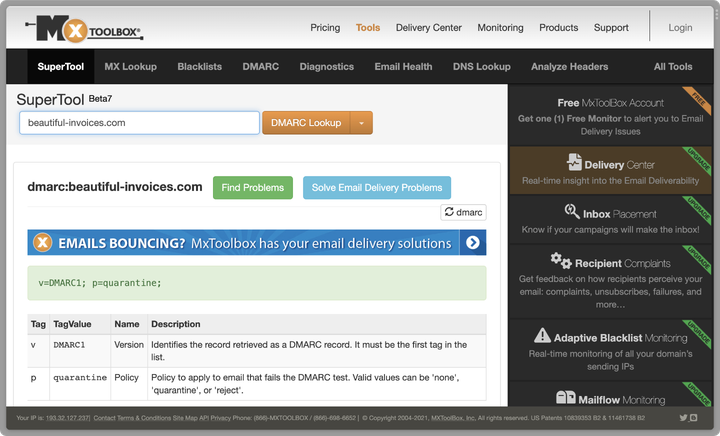Your DMARC policy is stored on your server and determines what happens to any emails sent from your domain that fail authentication.
Whether or not your email will end up in your customer’s email inbox is determined by the DMARC (Domain-based Message Authentication, Reporting, and Conformance) policy.
The recipient’s email server performs authentication with the SPF record and DKIM key and if either one of the two passes, the email gets delivered. If both SPF and DKIM authentication fail, the DMARC policy determines what to do with the email.

The following are some of the available policies:
Quarantinepolicy means that if the email fails authentication, it will be directed to recipient’s spam folder.Rejectpolicy means that if the email fails authentication, it will not get delivered.Nonepolicy means that neither of the above policies is in place and the email will get delivered. This is also known asRelaxedpolicy.
To check your DMARC record configuration and policy, you can use a tool like MXToolBox or something similar.
Tip
If your DMARC policy is set to either quarantine or reject, you can authenticate your email domain to make sure Sufio can send emails on behalf of your domain.
If you do not have a DMARC policy set up for your domain, Sufio automatically creates an example DMARC record you can use.
To verify you have correctly set up your SPF, DKIM and DMARC records, use a tool such as Learn and Test DMARC, mail-tester or similar that let you verify that an email you send from your domain passes all the checks.
Professional invoices for Shopify stores
Let Sufio automatically create and send beautiful invoices for every order in your store.
Install Sufio - Automatic Invoices from the Shopify App Store